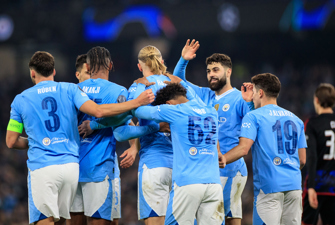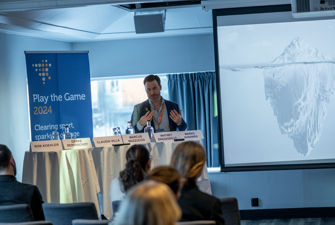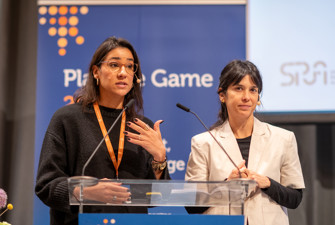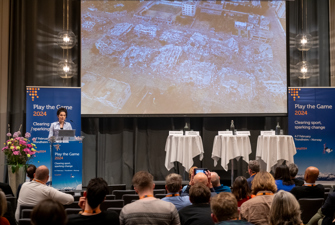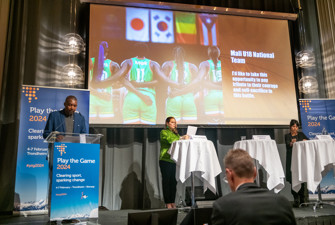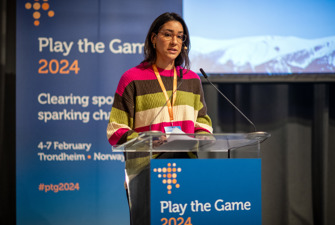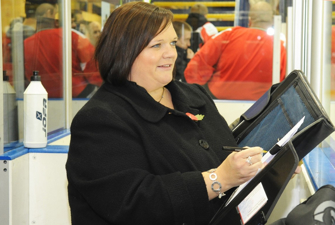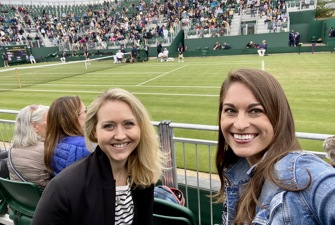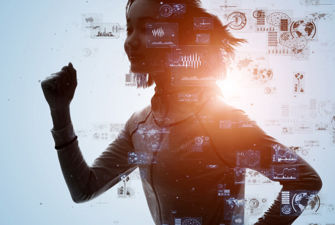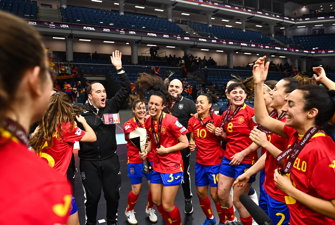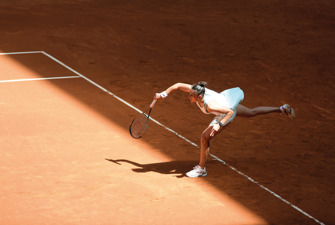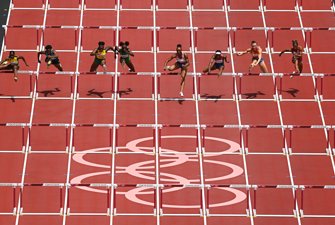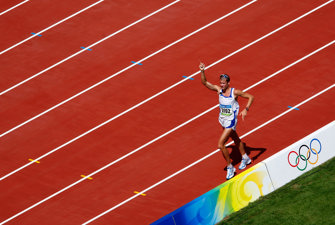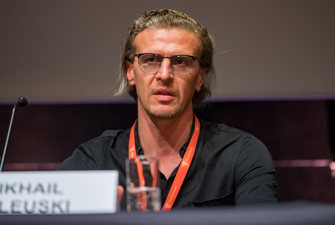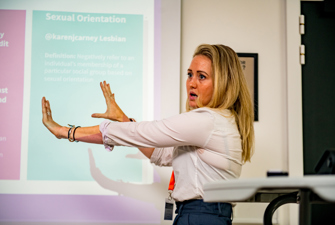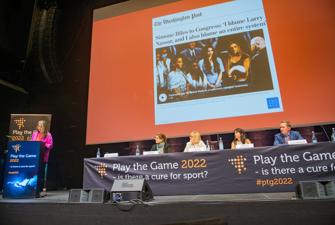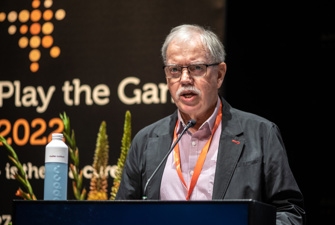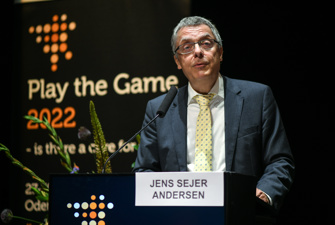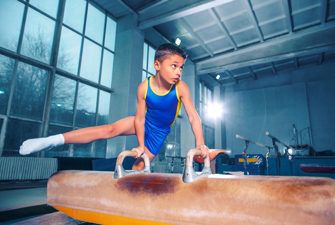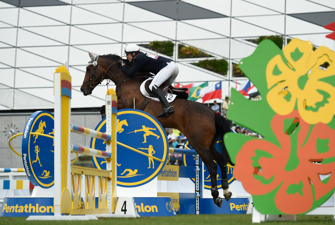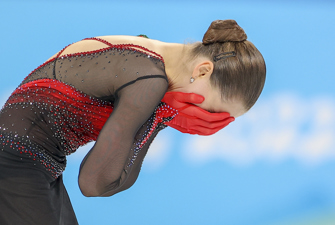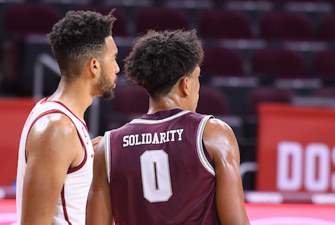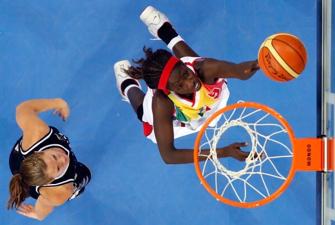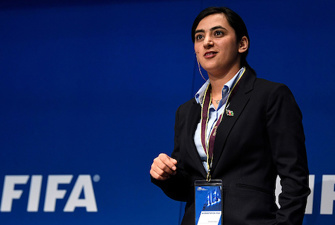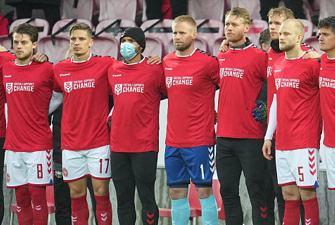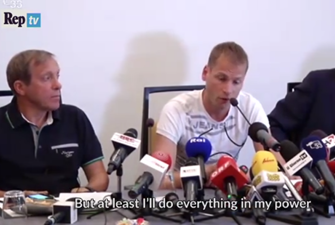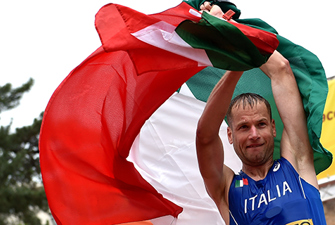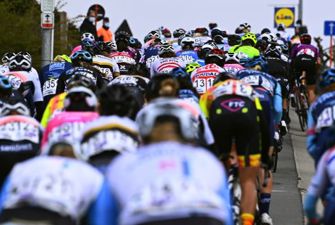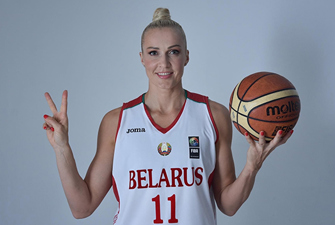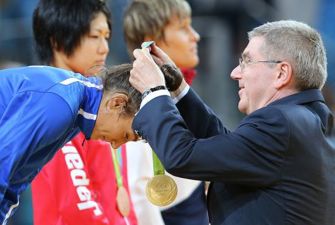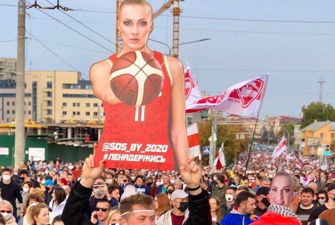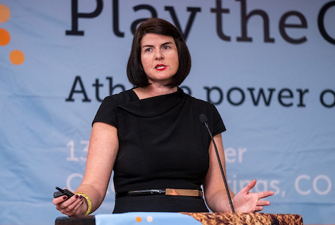Race and Sport: The Social Costs of Black Dominance
The past century of integrated sport has demonstrated that interracial athletic competition has both positive and negative effects.
The global prominence of African and African-American athletes represents for many people a clear example of racial progress in the modern world. Here, after all, is an international subculture in which black people can assert themselves and enjoy success to a degree that makes the world of sport look like an interracial utopia.
Compared to other venues of competition and endeavour, such as business, science or the law, the sports world is, in fact, an extraordinary social phenomenon that seems to contradict some familiar racial stereotypes. The sheer celebrity of the black athletic star seems a refutation of the colonial anonymity of the black masses, his wealth contrasts with traditional images of black poverty, while his honored status appears to dissolve centuries of racial subordination.
The utopian potential of sport in this sense has long intrigued the African-American leader Jesse Jackson. Describing the stadium crowd at an American professional football game, he marvels that there is "no suggestion of racial tension. Why is that possible there but not in the church, or in the schools, or anywhere else? Because whenever the playing field is even, and the rules are public and the goals are clear, we can all move to the next levelWe want an even playing field". (1)
The past century of integrated sport has demonstrated that interracial athletic competition has both positive and negative effects. The sports world does present a model of racial integration that makes more comprehensive social reforms easier for many people to imagine. It has provided many black people around the world with opportunities for social and economic advancement. It has also provided a platform for a small number of courageous black athletes to demand racial reforms in the larger societies to which they belong.
But it is also important to recognize the limits to progress that apply within this interracial domain. Racial integration in the sports world is relatively easy precisely because, as Jesse Jackson suggests, the more intractable social problems are left outside the stadium. At the administrative level, moreover, the colonial racial hierarchy remains quite intact.
The blacks who currently wield influence in the International Olympic Committee (IOC) and the international sports federations can be counted on the fingers of one hand: Anita de Frantz (IOC), Keba Mbaye (IOC), Lamine Diack (IAAF). Of the ten members who were expelled or resigned from the IOC in 1999, a conspicuous number were black Africans who lacked the political connections that might have saved them. But when the powerful European soccer official Lennart Johannson made a racist remark about black Africans in 1996, he retained his position. (2)
The upward mobility and wealth achieved by the most successful black athletes dominates media coverage and promotes an illusory sense of social advancement for blacks as group. Who would guess, in a world of NBA millionaires, that the net worth of the average African-American home is only one-tenth that of its white counterpart?
In a similar vein, omnipresent images of vigorous black athletes help to camouflage the disastrous health problems of both African and African-American populations. One black superstar can put a happy face on an entire system of racial injustice. Even a conscientious and politically progressive figure like Pel - one of the few elite athletes ever to serve as a government minister - has inadvertently distracted public attention from the enormous racial inequities that characterize Brazilian society. In a similar fashion, the sensational feats of Kenyan runners displace coverage of the political tyranny that is destroying their society.
The social costs and failures associated with racially integrated sport have been underestimated precisely because they cannot function as signs and portents of the racial progress globalization requires. The racial integration of European soccer, for example, has been accompanied by many racist mainfestations that raise troubling questions about the social utility of multiracial sport. A spokesman for the German Soccer Federation said in 1995, for example, that his sport stood for "problem-free integration." (3) But what sport symbolizes does not always match the reality inside the stadium.
In years past black soccer players in German stadiums would hear calls of "Hush, hush, hush, nigger in the bush!" or watch as bananas rained down the field. (4) More recently it has been good form for a German team to have at least one African player, but the effects of such initiatives are not clear. (5) Charles Friedek, a German triple-jumper who is the son of an African-American father and a German mother, commented last year:
"We [blacks] can win medals for them, but they won't let us in. When they see us in the stadium in our athletics clothes, they cheer us. If we walk on the street in our athletics clothes, then they think of us as asylum-seekers." (6)
Generations of African-American athletes (and soldiers) have made the same discovery about their own tenuous civic status, no matter how many medals they won "for their country".
The social problems exist across Europe. The Dutch national soccer team includes important black players from Surinam whose relations with their white teammates have at times been contentious. (7) In Italy one black player was hanged in effigy inside the stadium, and another subjected to other forms of racist abuse when he was on the field.
"We are disgusted, not only by the poor idiots who reject Ze Maria on account of his skin colour, but even more by the silent masses around them," Gazzette dello Sport commented. (8)
In Some European stadiums the spectators screech like chimpanzees at the sight of a black player. "It's a deep problem", an Italian sports official said in 1997.
"In the lower leagues, you hear the chanting when a player of African descent comes on to the field. But I'm not even sure that I'd call that racism. It's stupid emulation, a kind of generalized adolescent babble that the fans direct at the player without even knowing intellectually that what they're doing is racist". Nor is this behaviour just a matter of crowd psychology, since the racial slurs come from some of the white players as well as their fans. (9)
The sociological point here is that racial integration inside the stadium remains essentially symbolic - an arrangement one might call "virtual integration" - and has not succeeded as the social engineering strategy some have imagined it to be. In a word, athletic stardom is not equivalent to fully human status, let alone equal social status, in the eyes of many Europeans.This implicit distinction between the black athlete and the fellow citizen has been exploited by the extreme right in France. The racist politician Jean-Marie Le Pen attracted international attention in 1996 when he told his followers that the multiracial French national soccer team could not really represent France because it included too many "foreigners". These athletes, he complained, either did not know how to sing the national anthem or did not sing it "lustily" like the (all-white) teams of certain other nations. (10)
More ominously, Le Pen has invoked the idea of racial athletic aptidude to justify a racial hierarchy that subordinates blacks. Le Pen has stated that he believes in the "inequality of the races." History has demonstrated, he says, that the races "do not have the same evolutionary capacity." The 1996 Olympic Games, for example, had shown that "there was an obvious inequality between the black and white races." (11) The neo-fascist newspaper Rivarol mocks the idea that soccer in France might become a "fantastique laboratoire d'intgration." (12)
Le Pen's simplistic racial theory of genetically programmed black runners and white swimmers is one example of how multiracial sport has given nineteenth-century racial anthropology a new lease on life.
As Franz Fanon pointet out in Black Skin, White Masks (1952), Western racism has always identified black people with their bodies to an extraordinary degree. For this reason, stereotypes of black athletic superiority are now firmly established as the most recent version of a racial folklore that has spread across the face of the earth over the past two centuries.
At the same time a corresponding belief in white athletic inferiority pervades popular thinking abourt racial differences. Such ideas probably do more than anything else in our public lives to encourage the idea that blacks and whites are biologically different in meaningful ways. Conservative racial thinkers such as Charles Murray and Dinesh D'Souza have claimed that black athletic superiority is evidence of more profound racial differences, and there is no telling how many people, black and white, may agree with them. (13)
Behind its cosmopolitan faade, multiracial sport in the Age of Globalization retains a number of colonial features: a predominance of white administrators, the emphasis on black physicality, a white monopoly on leadership positions (coaches and managers) on the field, and white monopoly on leadership positions (coaches and managers) on the field, and white dominance of media and technology.
Worst of all, there is what one Italian sports official has called "a new slave market" - the importation into Europe of hundreds of black African teenagers as raw material to be tested, trained, and most often discarded by European professional soccer teams. (14) Small Wonder that stereotypes of "The African personality" thrive in this milieu. African marathoners, who have enjoyed much success, run "too anarchistically", says the Spanish runner Martin Fiz. (15) They must learn to run patiently, says the German coach Dieter Hogen. (16) The Nigerian soccer team, a British sportswriter comments, "has the force, the ability, the courage that belies African disorganisation." (17)
Rather than neutralizing such ideas, the multiracial sports world acts as a megaphone that amplifies and broadcasts racial folklore of this kind to an international audience that has already become accustomed to all-black sprint finals and the overwhelming superiority of East African distance runners.
The colonial dynamics of international sport also apply to the relationship between African American Athletes and the predominantly white society that watches, celebrates and sometimes resents them. While African Americans have believed in sport as an engine of racial progress since the 1920s, the limitaitons of this strategy have become evident during the period of "black dominance" in major sports that is now about a generation old.
In addition, the African-American athlete has become an international role model whose overwhelming media presence misrepresents African Americans as a group. Based on what their media show them, one black American wrote me form Thailand, South Asians have no reason to believe that African Americans do anything but play sports.
The 1996 inaugural issue of Brazil's first magazine for blacks included stories on Michael Jordan and Dennis Rodman of the NBA - a curious pair of world citizens with whom to celebrate black progress. Such caricatured versions of black identity are constantly being generated by the athleticzing of the black image that has become a staple of global advertising.
Most of the familiar images of black athletes in the United States do not serve the social advancement of African Americans. In recent years black athletes have been involved in a highly publicized series of criminal cases that have begun to worry the white owners of professional teams. The recent banning of a throat-slashing gesture by the national Football League was widely interpreted as an attempt to control the violent impulses of black players. (18)
The merging of a showy black athletic style with the crime-ridden "hip-hop" culture of the popular music industry has further promoted the identification of black athletes with criminal behavior. This is a significant phenomenon in a society where most whites already believe blacks to be violence-prone by nature.
The social and political activism once practiced by African-American sports heroes like Jackie Robison and Muhammad Ali is defunct. Like the vast majority of elite athletes everywhere, African-American athletes are essentially apolitical. Until his recent and ineffectual endorsement of Bill Bradley's presidential candidacy, Michael Jordan hand shown absolutely no interest in political principles or controversy.
One black sports columnist has called basketball players "most politically oblivious group of athletes" in the United States. (19) When the NBA players union attempted to mount a labour action in December 1998, the league's white administrators easily defeated them, and the intellectual competence of the black athlete was dealt yet another blow. (20) While African-American athletes in team sports now have an annual income approaching $2 billion, their financial contributions to higher education have been negligible. (21)
Conflicts between black athletic and academic achievement remain a serious problem. Over-identification with athletes and the world of physical performances limits the development of black children by discouraging academic achievement in favour of physical self-expression. A survey released in 1997 showed that two-thirds of African-American teenagers between the ages of 13 and 18 believed they would be able to support themselves as professional athletes. (22)
Another factor driving this symdrome is an intense peer pressure that equates academic excellence with effeminacy and racial disloyalty and identifies "blackness" with physical prowess. All of these social phenomena demonstrate that it is time to relieve black people everywhere of the athletic identity our colonial legacy has inflicted upon them.
END NOTES
(1) "NFL needs to erase its colour line", Austin American-Statesman (January 19, 2000)
(2) "Beckenbauer und die stille Erbfolge im Weltfussball", Sddeutsche Zeitung (December 7/8, 1996)
(3) "Heilige und Sndenbcke", Der Spiegel (April 17. 1995): 169.
(4) "In Berlin ist noch nichts Banane", Suddeutsche Zeitung (January 5/6/7, 1996)
(5) "Der Grol des grossen Broders aus dem Norden", Sddeutsche Zeitung (August 27, 1999)
(6) "Mit Drei Stzen den vorurteilen davongesprungen", Sddeutsche Zeitung (August 27, 1999)
(7) "Geld und Meisjes", Der Spiegel (June 17, 1996): 208-209.
(8) "In der Arena ist kein Platz", Sddeutsche Zeitung (July 26, 1999)
(9) "Blacks warily speak out", USA Today (April 22, 1997)
(10) "Le Pen sind Nationalspieler nicht franzsisch genug", Sddetusche Zeitung (June 25, 1996)
(11) "French Right Thrives on Outrage," New York Times (October 2, 1996)
(12) "Les 'retromes de Munich", Rivarol (June 4, 1993)
(13) See John Hoberman, Darwin's Athletes: How Sport has Damaged Black America and Preserved the Myth of Race (New York: Houghton Mifflin, 1997)
(14) "Die verlorenen Kinder des Fussballs," Sddeutsch Zeitung (November 11, 1999)
(15) "Sommernachtstrume", Sddeutsche Zeitung (August 20, 1999)
(16) "Ein wenig Zeit fr tausend Episoden," Sddeutsche Zeitung (September 30, 1996)
(17) "No easy pickings as time arrives for guessing to stop," The Times [London] (December 4, 1997)
(18) "Throat Gesture Faces Ban by N.F.L." New York Times (November 23, 1999)
(19) "Jordan Finds A New Arena To Play In", New York Times (February 12, 2000)
(20) "Both Sides in N.B.A. Lockout Say Race Complicates Talks", New York Times (December 16, 1998); "Is Falk Calling the Shots for Players in N.B.A. Talks?" New York Times (December 28, 1998)
(21) "A black athlete's reassessment" Boston Globe (May 27, 1997); "Players Don't Show colleges the Money," New York Times (April 6, 1997)
(22) "Improbable Dreams", U.S. News & World Report (March 24, 1997):46



